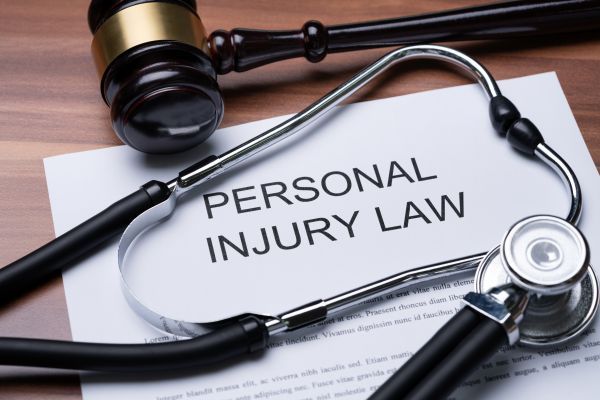How Do I Recover Lost Wages After a Personal Injury?
A sudden accident resulting in injury can disrupt your daily routine, your health, and your finances. Missing work because of your injury isn’t just about losing a paycheck. It can derail even the most carefully planned budget and add a significant amount of stress to an already uncertain and frustrating situation, especially when you should be focused on your recovery. Financial setbacks often build quickly, making your path forward seem even more challenging. Recovering lost wages with the help of an attorney can make a meaningful difference in restoring your financial stability.
Recovering lost income is not as simple as just telling the insurance company you missed work. You’ll need to provide detailed proof, showing both the nature of your injury and how it has directly affected your earnings. Insurance companies may require medical records linking your condition to the accident; employer statements verifying your pay, hours, and absences; and past tax documents to establish your typical income. Without strong documentation and a clear understanding of the process, you risk a reduced payout or, even worse, outright denial.
At Warren Allen LLP, you’ll find experienced attorneys who understand how much is at stake when your livelihood is affected. We are committed to helping you recover lost income so you can focus on healing.
What Counts as Lost Wages
In this context, lost wages are the earnings you would have received if the accident hadn’t happened, and cover more than just the days you were absent from work. Each loss leaves a gap in your financial security, and reclaiming that income requires persistence and organization, both of which might seem daunting in the aftermath of an injury. An attorney helps you think beyond your base pay to determine what your losses truly are, including overtime you might have earned, missed bonuses, or commissions or tips you would have received. Lost wages may also include the value of sick or vacation days you had to use during your recovery.
For example, a delivery driver recovering from a broken leg may lose weeks of pay, while a sales representative hospitalized at the end of a quarter could miss out on a hard-earned commission, and a server at a restaurant might lose hundreds in tips from just a few missed shifts. Although each circumstance is different, they all reflect real income that should be counted in a claim.
Lost wages differ from loss of earning capacity, which looks ahead, measuring how permanent limits can push you into lower-paying roles, fewer hours, or stalled advancement. Treating these as distinct categories ensures that both the immediate and the long-term losses are accounted for. Recovering lost wages with an attorney on your team helps ensure every form of missed income, large or small, is identified and included in your claim.
Gathering Documentation
Strong claims start with strong records. Your medical records are key in connecting the dots between your diagnosis, treatment plan, work restrictions, expected downtime, and follow-up needs. Employer statements help translate those limits into dollars by confirming your pay rate, typical hours, dates missed, and any benefits you were forced to use.
Pay stubs, tax returns, and bank statements all help paint the picture of what your usual earnings looked like before the injury, which is particularly important for those with variable income or commission-based work. At Warren Allen LLP, you will work with attorneys who will help you determine which records carry the most weight, fill in any gaps of information, and present your evidence in a way that strengthens your claim.
Calculating Lost Income
Calculating lost income depends on how you’re paid and the nature of your work. For salaried employees, the calculation often starts by breaking your annual salary into a daily rate and multiplying that by the days missed. Hourly workers use their hourly rate and scheduled hours, with overtime factored in when applicable.
If you are self-employed, the process may be more complex. Without set wages, claims rely on past earnings, invoices, contracts, and projected income from jobs you have had to decline. Lost opportunities, like missed bonuses, commissions, or seasonal work, should also be included. Things can get even more complicated if you return to work part-time, take a reduced schedule, or earn less through temporary remote work. In these cases, the difference between what you earned and what you would have earned must be carefully calculated.
Insurers may attempt to minimize payouts by questioning your injury’s severity, claiming your absence was unrelated to the accident, or searching for gaps in your documentation. Fast and accurate submissions limit opportunities for them to challenge your claim. When speaking with adjusters, keep your answers as factual and concise as possible, avoid unnecessary details that could be used against you in the future, and be sure to maintain records of all conversations and correspondence.
Long-Term Loss and Future Earning Capacity
Some injuries create lasting limitations that affect your ability to work well into the future. Loss of earning capacity measures the difference between what you could have earned before the injury and what you’re likely to earn now. This requires looking at your career path, potential raises, and advancement opportunities you can no longer pursue.
Proving this kind of loss often involves vocational experts, economists, and medical specialists. They evaluate your abilities, the job market, and long-term projections, then translate those findings into a financial figure that accounts for raises, benefits, and inflation.
Protecting Your Financial Recovery
Prioritize your health by seeking immediate medical care and by following your doctor’s recommendations. Inform your employer about your injury and inability to work as soon as possible, and keep detailed records of your recovery, missed work, and any opportunities you had to decline. While you can gather information yourself, a seasoned personal injury attorney provides strategy, assistance, and support. If you’re ready to pursue your lost wages claim, the skilled attorneys at Warren Allen LLP offer representation that will help you secure the compensation you deserve. Acting promptly gives you the best chance to protect your financial recovery and move forward with confidence.









